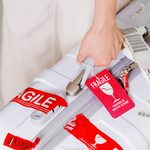How Long Should I Keep Documents?
Which documents you need to keep and for how long will depend on your occupation, your family circumstances and where you live.
Find out from the appropriate authorities (e.g. bank or credit union, tax office, insurance company) how long you need to keep specific documents. Here is a general guide for some of the more common documents.
Keep Indefinitely
Identity
- You must keep papers that establish your identity, and that of your family, in a safe place and for your whole life. If possible, keep originals in one safe place and copies in another
- Birth certificate
- Adoption papers
- Marriage certificate
- Divorce or separation papers
- Death certificates for family members
- Passports and naturalisation papers
- Driving licences for all family members
- Wills (held by a lawyer, public trustee or kept in a safe-deposit box in a bank)
Health
- Medicare card (Australia); community services card (New Zealand); health and social security card (South Africa)
- Private health care insurance policies and related cards
- Vaccination certificates
- Results of medical examinations such as pathology tests and X-rays
- Blood-group card (if you are a blood donor)
Education
Degrees and diplomas
Certificates of secondary, technical or other educational courses
Financial and legal
- Deeds and documents relating to property ownership (or unsigned copies if the originals are kept by a bank or other mortgagor)
- Copy of your will (keep original with a lawyer, a public trustee or in a safe-deposit box in a bank)
- Insurance policies for house or apartment (both building and contents cover)
- Life insurance contracts and policies
- Power of attorney
- Superannuation fund details
- Any civil or military pension entitlements. (In the case of loss, a copy of some of these documents may be obtained from the relevant authorities)
Keep until Retirement
- Pay slips, work contracts
- Letters of appointment
- Letters of dismissal
- Notification of termination of employment (and details of any Eligible Termination Payment)
- Records of unemployment or social security benefits, including those received in the case of sick leave or accident
- Lapsed insurance policies (and proof that they have been terminated)
Keep for 6-7 years
- Building permits
- Construction warranties on structural defects (6 years in NSW; 2 years for non-structural defects)
- Real estate agents’ fees
- Bank statements
- Chequebook stubs
- Loan contracts
- Receipts of deposits and transfers relating to a bank account
- Insurance policies covering cars, income protection and professional indemnity (review annually)
- Contracts with service providers for Internet and mobile phone access
- Invoices for furniture, paintings and other valuables
- A list of assets for insurance purposes (with photographs)
- Medical file created following an accident
- Property inspection report
Keep for 6 years
- Debt recovery limitation on loans between individuals
- Receipts of payment of lawyers’ fees
Keep for 5 years
- Taxation documents, including personal tax returns, company returns and, if registered for GST (or VAT), records of payments and refunds
- In the case of a tax audit, investigations can cover a period of up to 5 years. Keep the documents relating to your tax declarations for this period
Keep for 3 years
- Gas and electricity bills after you have left a rental property
- Documents relating to the sale and management of real estate property
- Rental agreement
- Rent receipts
- Receipt of payment of lawyers’ fees
Keep for 2 years
- Invoices for improvement work carried out on your home
- Receipts for local council rates
- Insurance premium receipts
- Correspondence with your insurer regarding the payment of any claims
- Receipt of payment for medical expenses
Keep for 1-3 years
- Telephone bills
- Warranties and guarantees
Keep for 30 days
- Bills relating to moving house; claims must usually be made within 7 to 30 days. Check the policy
Originally Published: August 16, 2010



